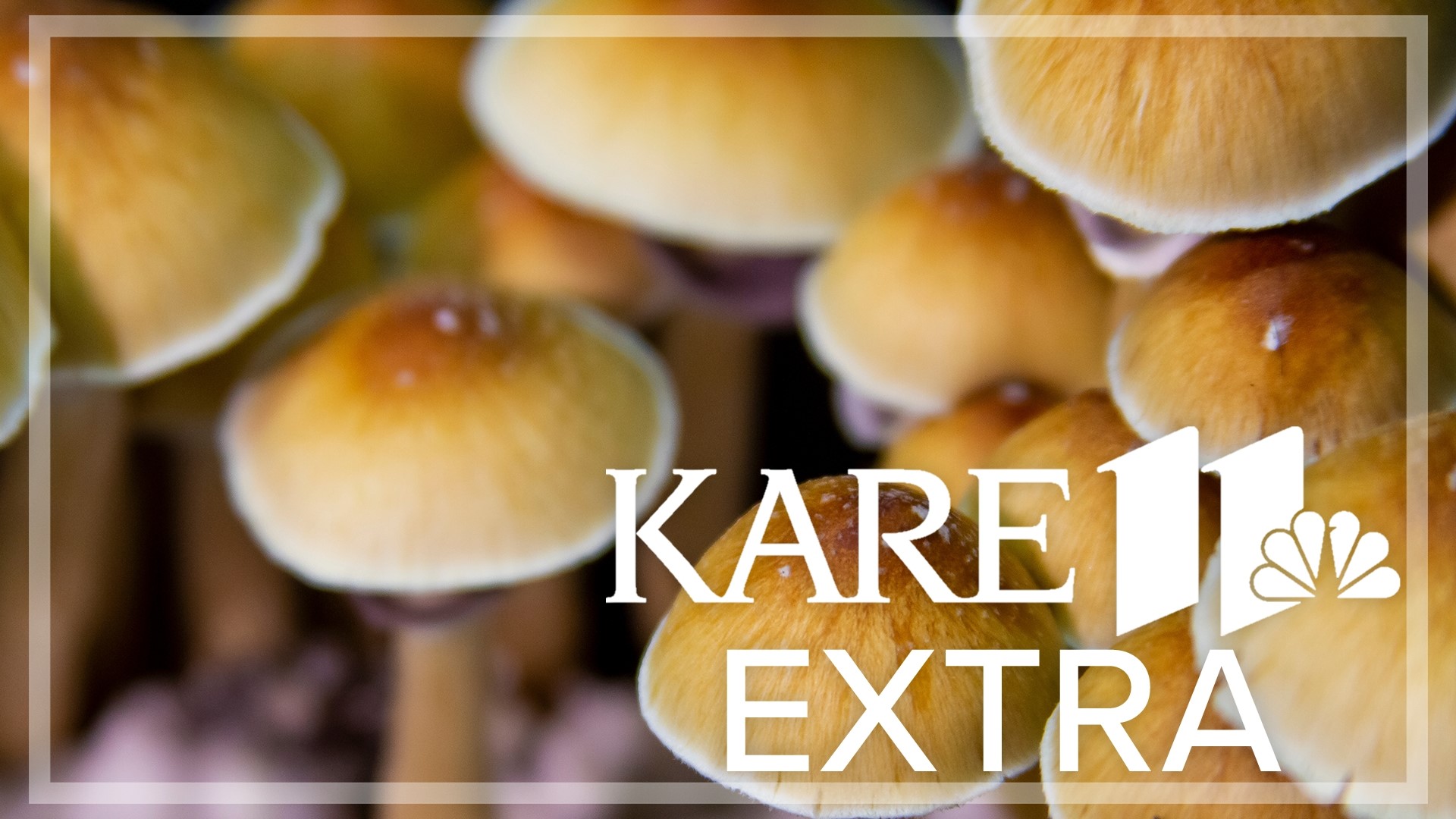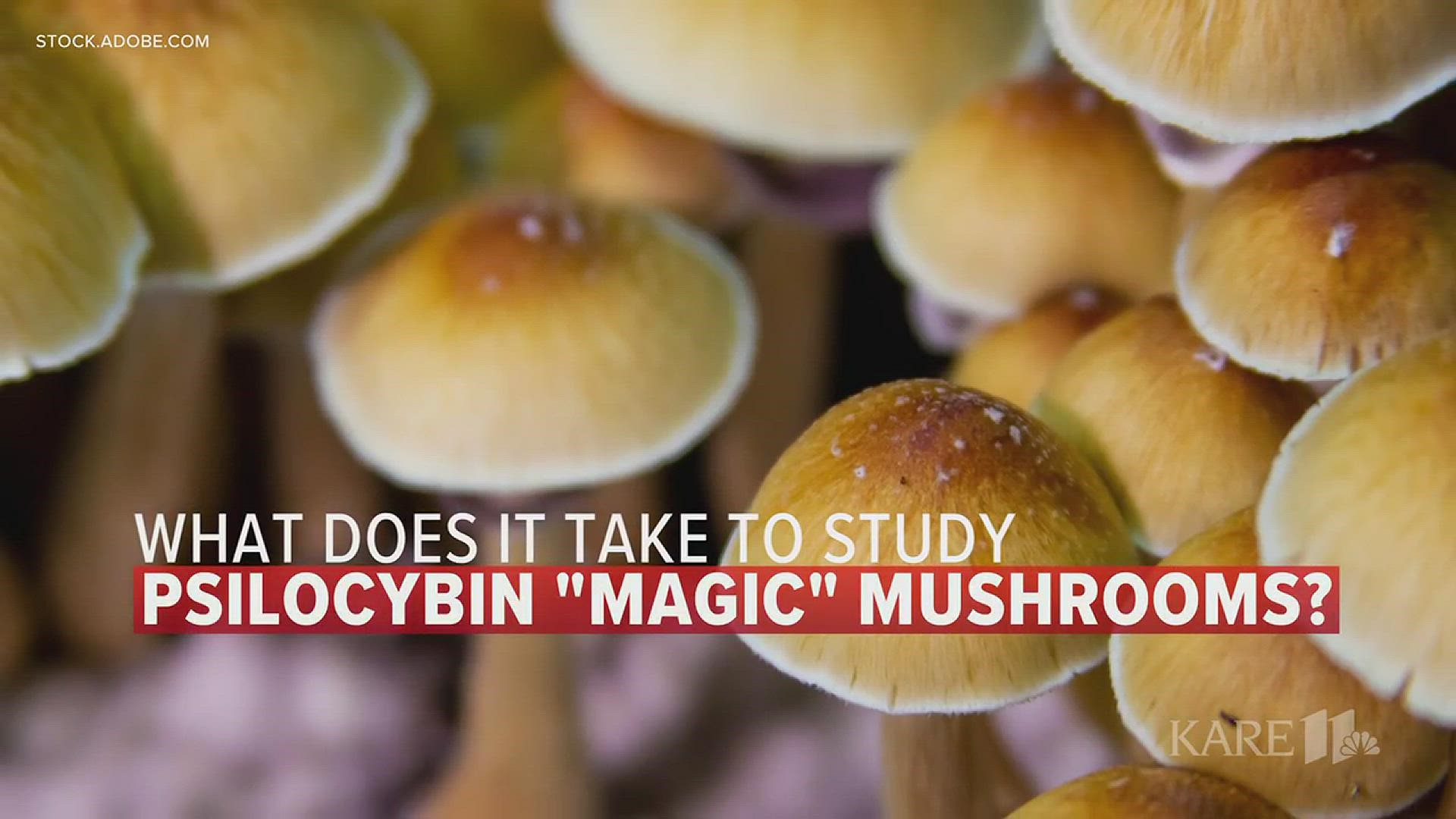MINNEAPOLIS — Dangerous and helpless? Or nature's cure for a variety of severe mental illnesses?
Psilocybin, the psychedelic drug found in "magic mushrooms," could fall under both categories, but a growing body of research is starting to show that this drug can improve severely depressed minds unlike any other drug available.
Civilizations across the world dating back 10,000 years have used it for spiritual connections, which led to an explosion in popularity in the 1960s counterculture scene.
Psilocybin, and many other drugs, were banned in the Controlled Substances Act of 1970, where it has remained a Schedule I drug of high potential abuse and no medicinal purpose.
This is all starting to change.
"How psilocybin works is very different than any other treatment we currently have for depression," said Dr. Roland Griffiths, professor of psychiatry and neuroscience at Johns Hopkins University School of Medicine.
Johns Hopkins has been the leader in psilocybin research for 20 years, and their latest study is no exception.
It looked at how two sessions of psilocybin, along with psychotherapy, affected a small group of moderately to severely depressed people.
"There's that meta part of yourself that's sort of watching you do this that says, 'You've been trying to do this for years and now you are doing it,' and that is super cool," said one of 24 research participants who's been on antidepressant medications for a decade.
Here's what the research showed. One month after the so-called trip, 71% of patients reported a reduction in depression symptoms by at least half. Fifty-four percent of the patients were in remission, meaning they no longer qualified as depressed. A follow-up, released just this month, revealed another surprise.
"Remarkably, the rate of treatment response and remission remained quite stable for 12 months after treatment, said Dr. Natalie Gukasyan, medical director for Johns Hopkins University Center for Psychedelic and Consciousness Research. "That's a pretty remarkable finding I think. So those effect sizes we saw were persistent for one year."
There's a growing body of research from other reputable institutions showing similar findings.
I'm sure you're asking: How?
How does a drug in a wild mushroom ease mental suffering like this?
It's something the brightest minds in psychiatry do not know.
It could be a neurochemical change in the brain. It could be an eye-opening matter of perspective for patients. Experts say it's hard to prove, yet.
"We are studying how psilocybin changes the brain," said Dr. Jessica Nielson, assistant professor of psychiatry and behavioral sciences at the University of Minnesota.
Nielson's lab is taking MRI brain scans, over time, of people after taking psilocybin, trying to find the drug's window of therapeutic opportunity.
The multi-year study will enroll 46 participants, but so far, nearly 1,000 people have applied.
"The hypothesis is that psilocybin is putting the brain into what we would call an adaptable state — a term called 'neuroplasticity.' So that it makes the brain able to change.
"Do you think it should be legalized?" KARE 11's Chris Hrapsky asked.
"For medicinal uses, absolutely," Nielson said.
The research is also looking into how and why psilocybin changes the visual system.
"This unusual experience that occurs is a scientific opportunity," said Link Swanson, a predoctoral student working on the study. "It's an opportunity to really understand the visual system, understand the broader nature of how the brain produces experience."
Today, psilocybin remains highly illegal, though the Food and Drug Administration recently deemed it a "breakthrough therapy," a status given to drugs that show "a clear advantage over available therapy."
Many companies are banking the drug will soon be rescheduled for use in clinics.
"The startling thing is that most people that come through our doors have no prior experience with psychedelics at all," said Dr. Manoj Doss, co-founder and medical director of the Institute for Integrative Therapies, a St. Paul clinic that was first in the state to offer psychedelic therapy 15 months ago.
While IIT can't use psilocybin yet, they do offer patients ketamine, a dissociative anesthetic that can produce psychedelic experiences. It was approved by the FDA in 2019.
"We see people from ranges of depression, anxiety, various forms of trauma. This shift in perception is like looking at yourself as a bird in the sky instead of being in the forest and walking through the forest and being sort of lost. You can rise above it and see your life in a totally new perspective," said Doss.
The clinic will soon conduct trials with psilocybin and MDMA as part of a research study.
BELOW: What it takes to study illegal substances like psilocybin:
While several studies show promise for psychedelics, some drug experts remain cautious.
Dr. Joseph Lee, CEO and president of Hazelden Betty Ford Foundation, a Minnesota-based drug and alcohol addiction treatment center, told KARE 11:
"Many substances — like opioids, for example — are helpful medicines and also have risks. They're neither good, nor bad. We just need to be careful in making sure capitalistic forces and public hype don't outpace science. Psychedelics show promise in early research but we still have a lot to learn, and real risks to avoid — everything from overuse and psychosis, to specific contra-indicated conditions and medications. At this time, rather than leaping ahead to make this a widespread psychiatric intervention, we need to accelerate the research and learn more."
Could this shroom boom lead to a revolution in mental illness?
Experts in the field have a dose of skeptical optimism. But it's early yet and the trip has just begun.
Watch more local news:
Watch the latest local news from the Twin Cities in our YouTube playlist:


